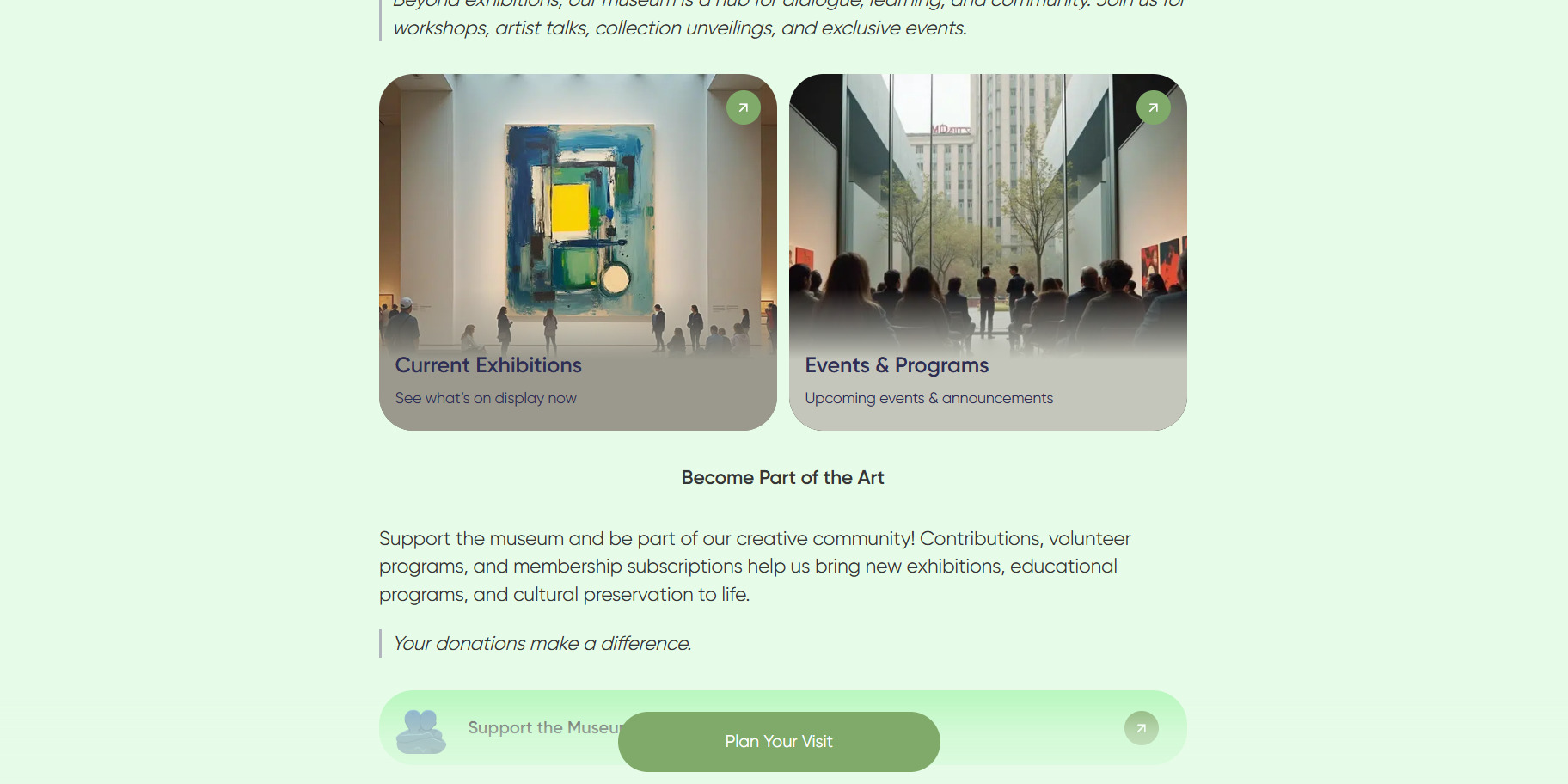.jpg)
Generation Z: Values, Characteristics and How Marketers Can Deal With It
The definition of Generation Z usually covers people with the age range from 1995 to the 2010s.When marketers ask "what is Generation Z", they typically refer to this cohort of young people who grew up with modern digital technologies, mobile communication, the internet, and social media. They’re often called the first true digital natives, zoomers, centennials, homelanders, pluralists, and iGen. These are young people who actively use smartphones, tablets, VR, and 3D technology in everyday life.
For marketers, zoomers are the most interesting audience because they’re a new generation of potential customers. The big question remains how to sell to them. This topic raises a lot of questions and is studied by sociologists, political scientists, economists, and even medical researchers.
Here, the focus is on Generation Z from a marketing and communications angle: how to earn their loyalty and build a constructive dialogue with this new audience.
Who are Generation Z
The generational theory was proposed by William Strauss and Neil Howe in their 1991 book "Generations: The History of America's Future, 1584 to 2069.” They showed that values, habits, and consumption patterns form under major historical events that, in one way or another, change people’s collective experience at a young age.
Strauss and Howe identified seven generational archetypes with a shared collective experience. The first cohort they describe, born in the early 1900s, will be mentioned but not examined in detail for obvious reasons.In the common Generation X Y Z naming system, each period covers a specific age range and unique characteristics. Here’s a brief overview of six generational types that followed:
Main characteristics of Gen Z
Let’s look at how zoomers’ habits, attitudes, and values shape their decisions. These are averaged theses that partially overlap with adjacent generations and don’t have to be concentrated in every single Gen Z representative. Below are the most important Generation Z characteristics that distinguish them from Millennials and Generation Alpha.
What they value
😼 They want “everything at once”: family, work, self-realization, impact, and money. Impact means making something useful for people through entrepreneurship. The mission of impact-driven business is not only to earn money but also to help solve important global problems. In other words, to work for the good of the world and make life better.
😻 They value a reasonable work–life balance
😸They see themselves as unique and appreciate uniqueness in others
😾 They don’t want to be manipulated.
😾 They don’t accept injustice.
😿 They want to be understood
🐱 Simple is valuable, complex is not
What they believe
😽 Pleasure is more important than money
😽 It doesn’t matter how much they have or own, what matters is investing in themselves here and now
😼 They don’t need someone else’s interpretation — they judge for themselves
😼 They make decisions independently, without looking back at other people’s opinions
😽Everyone has the right to a voice and freedom of choice
😽“My censor is me”
😼 No commitment
😼 No loyalty
😼 No authorities
😻 They’re interested in ecology and green technologies
How they think
😽 They have clip thinking, attention span is no more than 8 seconds.
😼 They’re pragmatists and realists, with immunity to constructs that dominated in previous generations.
😸 The world seems simpler to them; there’s less depth of perception.
😸 The world is global and has no borders.
😽 They have high expectations.
😽 They have high self-esteem.
😾 They struggle with making choices:
- they know what they don’t want — they don’t want linear career tracks or to stay long in one place;
- they don’t know what they do want — when ambitions can’t be realized, it leads to frustration and depression (hence the demand for psychotherapy and antidepressants).
🙀They’re often under stress.
Lifestyle
🐱 Life is online
😸 Every zoomer has a personal media channel — social networks
😾 They face intense competition
😾 They don’t want to work in large corporate structures
😻 They want personal projects
😻 When choosing a company or product, they focus on values
😻 They’re ready to take on any tasks and do things quickly
😼 They’re not ready to work long-term
😻 They’re self-taught
😿 They bounce around and find it hard to set feasible goals
😼 They’re egocentric
😸 “Programmer” is often cited as the most popular profession among zoomers. Other sources name “blogger.”
How they interact with others
😻 They write more, read more — they don’t like phone calls or talking in person
😻 They prefer messengers over email
😸 Communication, work, hobbies — all are online
😸 They don’t separate offline and online communication — it’s the same to them
🐱 Weaker social skills — again, because most interactions happen online
😾 A tendency toward aggressiveness and cynicism
😸 No workaholism
😸 No communication gap with the older generation, but they exist in different information fields
🐱 They experience parental hyper-care
😸 They’re not ready to rebel or enter into conflicts with the older generation
What Generation Z chooses
Gen Z’s characteristics form specific expectations toward companies and products offered by the market. Here are some traits zoomers pay attention to when choosing a product or company.
Digitization
Generation Z loves digital solutions and innovation. They value fast and technological ways to solve their problems. Zoomers actively use social media, so brands that live on TikTok, YouTube, Instagram, Snapchat, and similar platforms can attract their attention.
Diversity and inclusion
Companies that adhere to social responsibility, equal rights, and anti-discrimination win this generation’s sympathy. To attract zoomers, brands also build different product usage scenarios that consider people with different needs. Gen Z reads this as care and attention, not just compliance.
Personal space and result focus
Generation Z appreciates brands and products that offer individualized solutions and let them achieve real outcomes. Remember, they operate in a highly competitive environment and want to build skills quickly and effectively.
Globalism and multiculturalism
Gen Z usually responds positively to brands that let them explore and interact with different cultures and societies. Companies that actively expand globally and support cultural diversity can get their attention.
Culture of the moment
Gen Z values instant and short-term entertainment, so they choose brands that provide quick access to fun and information. They actively participate in social media culture, and brands that deliver current, interesting content can be popular with them. The same applies to art and knowledge: instead of boring textbooks and lectures, they prefer interactive learning.
Eco-mindedness
Gen Z pays attention to caring for the environment and to ethical relationships between people. They value eco-technologies, sustainable production, and corporate social responsibility.
How to adapt marketing for Gen Z
Marketing for Gen Z should be built on their trends. Here are 5 trends to use in communications, with ideas for how to play them out in quizzes.
1. Play and engagement instead of boring ads
Trend: Generation Z grew up on games, challenges, and memes. They see interaction as entertainment.
How to use in a quiz: create a gamified quiz with points, progress bars, and a final result that users can share on social media.

Example: a test for marketing courses.
2. Sincerity, simplicity, and a human face
Trend: Gen Z doesn’t like pomp and fakeness. They prefer brands that speak honestly, admit mistakes, and behave like a person.
How to use in a quiz: add a live, friendly tone, light humor, and simple language. Don’t try to sell from the first second — offer an easy first step and see if there’s mutual fit.

Example: a quiz for entrepreneur.
3. Self-discovery and personalization
Trend: Gen Z loves self-knowledge tests: who they are by personality type, what kind of business they are, what vacation format suits them. And they expect a personalized result.
How to use in a quiz: design a quiz that returns an individual result and suggests what to choose.

Example: a quiz for a fashion course.
4. Social meaning and values
Trend: Zoomers choose brands by ethics: environmental care, equality, support for local initiatives.
How to use in a quiz: ask questions that reveal user values, and show how the product supports those values in the results. To tell and show more about the company on one screen, use a landing page with an embedded quiz.

Example: a lightweight landing with a quiz for a contemporary art museum.
5. Short format and instant result
Trend: Attention is scattered. Zoomers want everything quickly: to go through, learn, decide.
How to use in a quiz: a mini-quiz of 3–5 questions with an instant result and a call-to-action.

Example: “Choose the right wine in just 1 minute”.
How to Communicate With Generation Z
Communication with Generation Z requires a special approach. Here are four directions that can help.
Don’t pressure. Engage
Gen Z usually responds better to involvement and collaboration than to harsh, authoritarian approaches. Instead of pushing, create opportunities to exchange opinions, participate in decision-making, and express themselves. For example, instead of an outdated site with lofty claims about product advantages, launch a lightweight landing and an interactive quiz that shows how the product works.
Increase transparency and clarity
Gen Z grew up in a world where information is easily accessible and diverse. They value transparency and want to understand what’s happening around them. Provide clear, reliable information about products, services, events, and company values, briefly and to the point.
Create conditions for sociality
Gen Z actively interacts online and in social media. Support this sociality by building online communities where they can discuss shared interests and questions. Consider their desire to exchange experience and knowledge.
Build a social environment that’s comfortable and interesting
An inclusive, friendly social environment helps zoomers feel comfortable. This includes places to communicate, events where they can meet friends, and opportunities to participate in activities that interest them.
Generation Z vs Millennials
You might think Generation Z and Millennials are pretty similar since they’re both youngish groups, but there’s more to it. Let’s break down Generation Z vs Millennials and see what sets them apart.
Tech’s a big one
Millennials grew up as the internet took off, figuring it out as they went. Gen Z never known life without it. For them, tech’s as natural as breathing.
How they talk’s different too
Millennials are big on email and Facebook, while Gen Z’s all about instant messaging and apps like Snapchat or TikTok. If you want to reach them, skip the inbox and hit their DMs.
Work and outcomes
Gen Z optimizes for flexibility, personal projects, and rapid skills gains. Millennials are often pragmatic but may be more patient with longer pathways if they see compounding returns
Values and ethics
Both care about social stuff, but Gen Z’s louder about it. They’re out there on social media pushing for change, way more than Millennials ever did. They expect brands to step up too.
So, if you’re marketing, Millennials might love a nostalgic vibe or a feel-good mission. Zoomers want real talk and real action.
Generation Alpha vs Gen Z
At first look they seem more alike: screens from day one, internet everywhere. But Gen Z grew up mobile-first, while Generation Alpha is coming of age AI-native. Tablets, smart speakers, and voice search feel as normal as a light switch.
How they use tech
Gen Z is fluent in swipes, short video, and fast apps. Alpha treats tech like a conversation: they ask, it answers. Finding information is instant and has multiple paths for Alpha: search engine, smart speaker, or a quick prompt to an AI, whichever gets the result faster.
Learning and attention
Gen Z made microlearning mainstream. Alpha expects the lesson to adapt in the moment: dynamic difficulty, quick feedback, and progress that’s visible without long instructions.
Social life
Gen Z blurred the line between online and offline. Alpha took it further: early friendships often start in multiplayer games like Minecraft or Roblox, where play, chat, and projects blend. Lockdowns slowed some offline social practice but boosted comfort with finding friends and collaborating online.
FAQ
What is the generation after Gen Z?
Most frameworks say Generation Alpha comes after Gen Z. In the generation x y z naming chain, Alpha follows Z and marks a new cycle.
What years are generation Z?Different sources vary, but the period generally spans roughly from 1995 through the early 2010s. This age range now centers on late teens to late 20s.
What generation was before Gen Z?
Before Gen Z came Millennials, also called Generation Y, typically defined as people born around 1981–1996, which frames what years are generation z as the next cohort after them.
A Quiz for Zoomers
Working with Generation Z requires flexibility and an understanding of their unique needs and preferences. An approach based on respect, engagement, and opportunities for social interaction helps build productive relationships with zoomers.
Build the first interactive quiz and win over Gen Z in the Marquiz panel.









.jpg)
.jpg)







